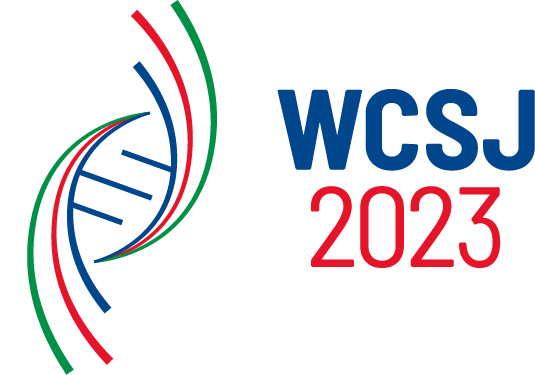Café de Colombia
Cafe de Colombia is the brand of the Colombian coffee growers, created to promote 100% Colombian coffee both in the industry and among consumers as a high-quality product. The richest coffee in the world.
Along the almost 3,000 kilometers of inter-Andean valleys, from the southern end to the northern tip of Colombia, 540,000 coffee families live on small farms or plots, whose coffee crops, on average, do not exceed two hectares. Their solidarity, commitment, search for the common good and sustainable development, form a social and strategic capital and a model of peace for Colombia. They are dedicated to transmitting the best of themselves in their artisanship. In order to appreciate a cup of Colombian coffee, it is important to know the work and effort of these families.
 |
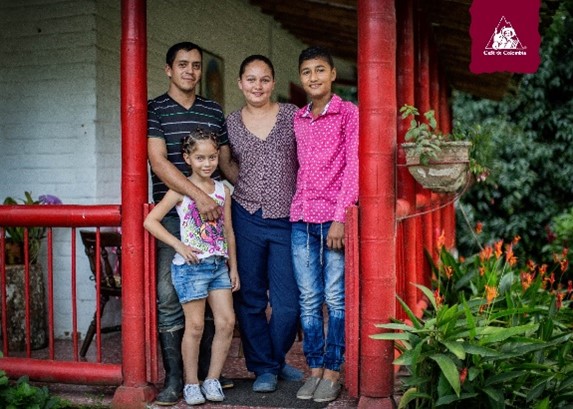 |
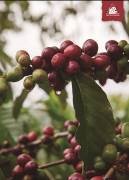 |
Colombia has become a world leader for its commitment to sustainability, empowering and working with of coffee producers to make coffee producing a profitable business, working harmoniously with the environment and contributing to the social development of the communities.
For more information:
- cafedecolombia.com
- Facebook: @cafedecolombiaworldwide
- Instagram: @cafedecolombiaww
Cenicafé
The 9th Coffee Congress created the National Coffee Research Center, Cenicafé, in the year 1938, based in the municipality of Manizales, Caldas. Since then, Cenicafé has been supported by the Colombian coffee growers, which has allowed the development of a significant number of research projects in different areas of knowledge related to the coffee production system; from the studies on genetics to obtain new varieties, to the generation of recommendations and technologies that contribute to the improvement of the efficiency of production factors in the farm.
In order to develop its research projects, Cenicafé is aligned with the Strategy of Value of the Federation, directly impacting the economic, social and environmental pillars, giving priority to those topics that contribute to the profitability of the crop, especially in relation to increases in productivity, improvement in cup quality and efficiency in the use of inputs and labor. With this purpose, 14 Disciplines carry out research in an interdisciplinary way on topics related to the biology of the coffee plant, the functionality of production systems, the integrated management of pests, diseases and weeds, the breeding of new varieties, the conservation of soils and the nutrition of plantations, the technologies for harvesting, processing and drying coffee, the efficient use of the water resource, and finally the study cup quality and its differentiation.
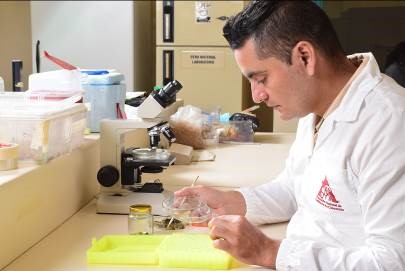
On the other hand, the particular characteristics of the coffee territory have allowed the identification of regions that, because their agro-ecological conditions have different needs for research. Coffee cultivation is therefore distributed in three major regions in the country: north, center and south. Cenicafé, recognizing the importance of this geographical factor, has eight Experiment Stations to carry out research under different environmental conditions, and provide recommendations and in a regional approach. Additionally, the Experiment Stations multiply the seeds of the bred varieties Castillo (north, center and south), Cenicafé 1and Tabi, resistant to diseases such as the coffee leaf rust and coffee Berry disease, that are distributed among coffee growers through the Departmental Coffee Committees.
Rural extension
Since its creation, the FNC has oriented its actions towards the provision of a technical assistance service for coffee growers, complemented at that time, with an experiment farm (1929) and the formation of the first ”Extensionists”, who traveled the Colombian coffee area, bringing technical and social messages to the coffee farmers and their families. From the year 1939, these tasks were aimed at strengthening various issues through educational campaigns on soil and water conservation, coffee processing, and rural housing, among others.
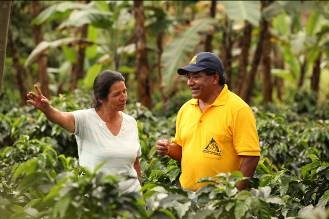
In 1959, the 21st Coffee Congress created the Rural Extension Service, decentralized in 15 Departments, following as the fundamental principle the education of the farmer and his family, training for improved productivity and development of the coffee community.
The General Management, through the Technical Management of the National federation of Coffee Growers, executes the guidelines of the Coffee Congress, and guides the specific actions of the Rural Extension Service, through different programs aligned with the strategy, and framed in the institutional vision and mission.
For futher information:
- cenicafe.org
- Instagram: @cenicafe
